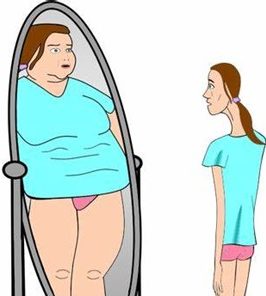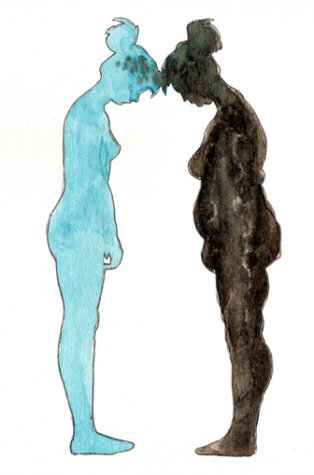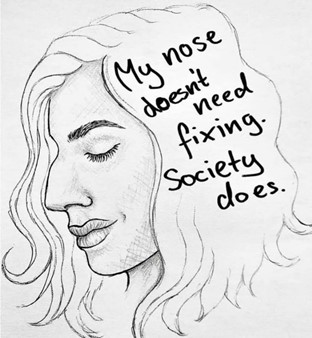Body Dysmorphia: Is Mark Zuckerberg the One to Answer for it?
November 24, 2021
Genius, billionaire, playboy, philanthropist… sorry, wrong billionaire. Mark Zuckerberg runs both Instagram and Facebook, and although it is no Stark Industries, he is still big enough to affect millions of people.
At first glance, Instagram and Facebook are a fun place to share pictures with your friends. But what if you were to look deeper?
“A mental health disorder in which you can’t stop thinking about one or more perceived defects or flaws in your appearance – a flaw that appears minor or can’t be seen by others.” This mental illness has recently been tied to the effects of having Instagram and Facebook.
 Body Dysmorphia Disorder (or BDD) causes a person to deeply believe their appearance is something other than what truly is. They see a deformed version of themselves, and often this image they see will never change.
Body Dysmorphia Disorder (or BDD) causes a person to deeply believe their appearance is something other than what truly is. They see a deformed version of themselves, and often this image they see will never change.
This belief can cause many to have severe social anxieties. The fear that people are laughing or making fun of the person follows them constantly until social interaction is too exhausting to face.
In a recent report from The New Yorker, the idea was brought up that young teenagers who struggle with BDD seem to be able to trace the source to one common place: Instagram.
It is not new information. People have been saying for years that Instagram and Facebook are extremely unhealthy for teen girls. However, even when the topic was brought up in a conference, no move was made to right the severe wrong.
When asked about her experience with body dysmorphia and Instagram, a seventeen-year-old from North Penn described her experience like this. “Me getting social media at such a young age is the reason I can say I got so attached to makeup and I only feel pretty when I have makeup on. I used to watch makeup tutorials for hours. The first time I did a full face of makeup was fourth or fifth grade and that’s when I realized I look so much prettier with makeup and that’s just when everything went downhill.”
 A nine or ten-year-old putting on a full face of makeup because social media told her that’s how you look pretty. This displays one of the many symptoms of body dysmorphia: going to extreme lengths to cover perceived body issues through makeup and sometimes surgery.
A nine or ten-year-old putting on a full face of makeup because social media told her that’s how you look pretty. This displays one of the many symptoms of body dysmorphia: going to extreme lengths to cover perceived body issues through makeup and sometimes surgery.
Despite there being plenty of evidence proving Instagram and Facebooks effects on young girls, the company has done nothing to improve it and is instead spreading their platform. Mark Zuckerberg aims to create a social media platform similar to Instagram for younger kids. This would mean starting the pressures of social media even younger.
The pressures of social media are a daily anxiety on teen’s shoulders. A sixteen-year-old from Central Bucks South High School recounted her anxieties like this, “I feel like I need to make sure that I’m alive on it because a lot of people communicate through it. I feel like I need to be around, so I know what’s going on.” She mentioned this repeatedly, putting emphasis on the fact that if she isn’t on Instagram, she constantly thinks about what people may be trying to tell her and if it’s an emergency.
If people were exposed to social media younger, would the next generation’s mental health be even worse? In a study by CNBC, 32% of teen girls felt that when their body dysmorphia was at its worst, Instagram somehow brought their confidence lower. Would confidence be even worse? Will this younger generation feel even more pressure? It’s a scary idea.
Another scary idea is the opportunities it opens for bullies. It was bad enough for a student from North Penn, who faced cruel bullying over her Instagram in her younger years. In her own words, “This one kid made a comment, and he was like ‘Why your body built like that?’ and I remember going on Instagram and archiving every single one of my posts that had my body in it and then I deleted it.” At a very young age she felt the need to hide herself because of something a boy said, all tracing back to Instagram.
Is Instagram the source of body dysmorphia? Or is it simply a factor? The only thing Mark Zuckerberg can do is listen. Listen to the reports, listen to his workers, and most importantly, listen to the kids he is affecting. And it wouldn’t hurt to take after Tony Stark in the philanthropist department.

